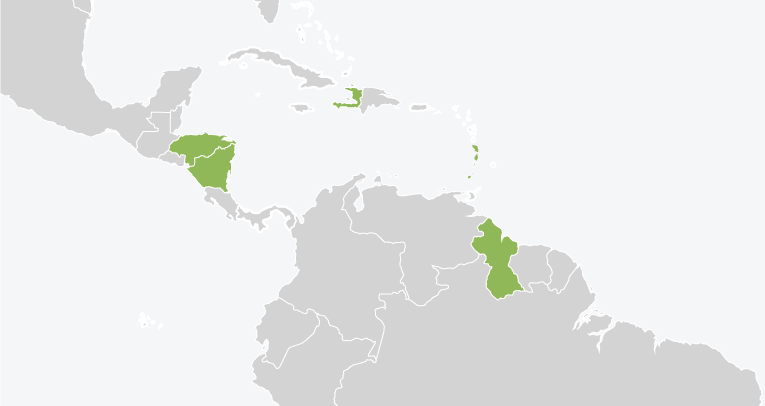
The Regional Hubs are a key knowledge exchange and knowledge brokering mechanism for KIX. Since March 2020, the hubs have been steadily setting up their operations, identifying their regional agenda, contributing to the development of KIX’ latest funding opportunity and adapting their work to accommodate the current COVID-19 pandemic. In this news item, we provide an update on the progress and priorities of the KIX Regional Hub for Latin American and the Caribbean.
Latest activities
On June 9th, 2020, the LAC hub hosted an online meeting to introduce the hub to its partners and share information about the hub’s priority setting process. The event was attended by more than 50 participants that included representatives from Ministries of Education and civil society from 8 countries that are members of the KIX Regional Hub for Latin America and the Caribbean.
To identify the priorities of the GPE-partner countries that the hub oversees, the LAC hub led a process from March to July 2020 to identify shared policy challenges for public education systems. The LAC hub consulted country representatives, policymakers and local education group (LEG) members to identify key knowledge gaps across the 8 countries that the Latin America and Caribbean hub oversee to inform the regional knowledge & research agenda.
From this consultation process emerged a report on regional priorities. This report has informed the recently launched Call for Proposals in Latin America and the Caribbean. The call is open until Sept. 30, 2020.
Summary of key regional priorities
The summary of the report on the results of the consultation process allowed KIX to identify the following priorities:
1. To sustainably enhance the capacity of national education systems to improve equity in education in rural communities through culturally responsive approaches that combine support programs for rural students, teachers and schools.
2. To build, systematize and/or adapt efficient, contextually relevant and cost effective mechanisms to support capacity building efforts within the education sector, with focus on technical teams, mid-level authorities and school principals on areas that are key for a successful implementation of national policy reform processes within education systems.
3. To develop adapted approaches (e.g., tools, resources, actionable frameworks) that introduce and reinforce gender equity and inclusion perspectives in education planning and practices towards more equitable access and increased learning opportunities for all children, regardless of gender.
Adaptation to COVID-19
Due to the pandemic, changes have been introduced in how the hub facilitates knowledge exchanges. The hub is actively working on enhancing the organization of virtual meetings and online gatherings.
Although COVID-19 is not the main priority for the GPE partner countries that the hub oversees, most of the priorities intersect with the changes introduced by the pandemic. These include: conditions for teacher’s professional development, use of technologies in education, development of curriculum and financial capacities within the education sector.
